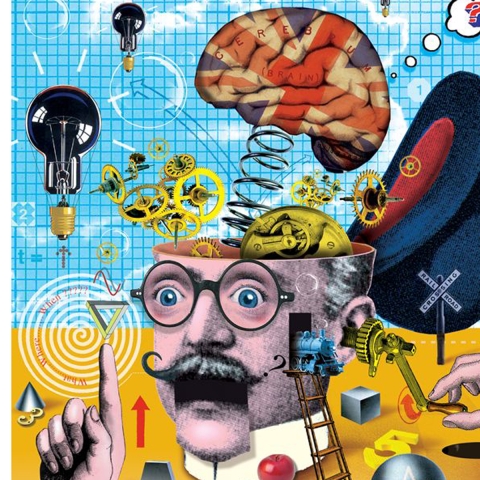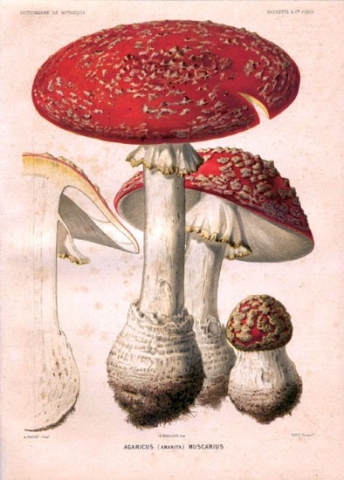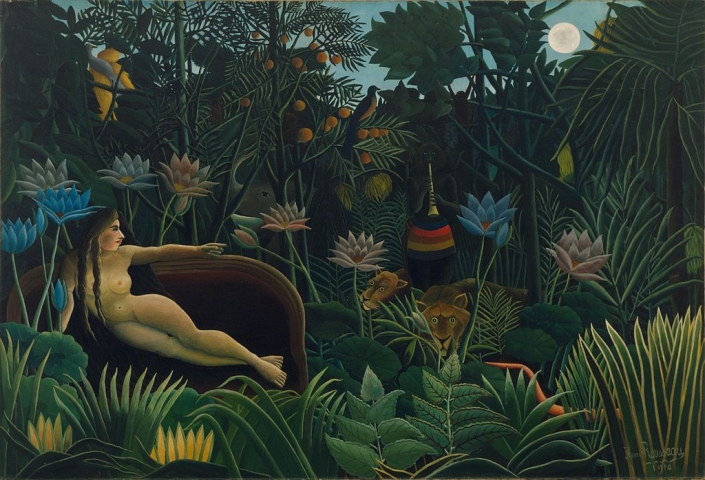Relieve stress with CBD Oil
Not so long ago, I threw myself off social media. An exciting experiment, which I wanted to start much earlier. However, it was more difficult than I thought and I kept putting it off. I weighed up the pros and cons; having contact with distant friends and family members, staying abreast of fun events, keeping up with the news...
On the other hand: stress. It took me some time to admit it, but after I had examined myself thoroughly I was able to make the diagnosis: I suffered from stress and that was (partly) because of Facebook. I couldn't enjoy a Friday night at home alone on the couch, because the thought kept haunting me: 'right now there's a super nice party going on where everyone is probably having the time of their lives and I'm not there'. I was also confronted with people I hadn't seen for a long time, but to whom I attached many memories.
So, already in the early morning an intense trip back into the past, that made my breakfast sometimes a bit difficult to digest. I also sometimes got messages from people that I really couldn't do anything with, but I did start thinking about. News about a lot of unimportant things that my brain couldn't filter properly, so I was, as it were, stuffed with a mountain of information that caused me a lot of unnecessary unrest. Of course I also came across the nice things, the cheerful news from acquaintances, a celebration, a nice holiday and so on. However, when I kept noticing that I continued to show symptoms of stress after 'checking Facebook', it became clear to me: health comes first.
What is stress?
Maybe now you're thinking: 'Oh, what a nag. Stress from Facebook? What makes you think that?’
Everyone has to deal with stress from time to time, and that's a good thing. Our body has this function for a reason: when we get into a precarious situation, stress can make you survive the situation. An example: you are walking through a large forest and suddenly there is a bear in front of you. At such a moment all kinds of things happen in your body to make sure you survive the situation. It goes like this: Our central nervous system causes us to switch to survival mode in a moment of danger. The hypothalamus is the part of our brain that takes action: this part of our brain gives signals that cause our body to produce the hormones adrenaline and cortisol. When our adrenal glands produce these hormones, our body receives a boost. Our heart rate goes up considerably, we can suddenly be much stronger than normal, partly because our blood is sent much faster to important organs and to our muscles.
It sounds pretty intense and it is. A bit of Facebook scrolling can't have sucha strong effect, can it?
Where do you get stress from?
Yet you can hear it in almost everyone around you: 'I'm stressed'. Whether it's due to work pressure, a diagnosis, the loss of a loved one, social media, study, moving... or all this together, the fact remains that our bodies feel unsafe and continue to produce the hormones cortisol and adrenaline. In 'normal' circumstances (for example when you bump into that bear), the hypothalamus tells your body that everything is okay again, when you have been able to escape the danger. You are safe again, so the stress can disappear.
In today's society, your body can be exposed to stress every day again, so there is no 'safety'. This causes your central nervous system to keep firing signals. This is called chronic stress and is very bad for your health. It may seem normal to lead a stressed life, because so many people in our society have it. It is not possible never to experience stress, but as soon as it affects your quality of life in such a way that your health deteriorates, it is time to intervene. Too much stress can lead to high blood pressure, damaged blood vessels, an increased risk of a heart attack, anxiety disorders, headaches, sleep problems and weight gain.
You can recognise in different ways whether you suffer from chronic stress. Indicators can be: chronic pain, low libido, difficulties in making decisions and concentration, fatigue, eating too much or too little, digestive problems and sleep problems. Sometimes it is difficult to find out for yourself what exactly is going on, especially if you are used to the situation. Maybe it is quite normal for you to get up in the middle of the night and eat a lot of sweets in the kitchen. In a short period of time, you work away a lot of high-calorie snacks that your body doesn't ask for at all. This behaviour of 'stress eating' is one of the many ways in which a person tries to calm themselves, although it is of course of very short duration and not very meaningful.
How can you let go of stress? For me it made sense to spend less time on my phone, for you other steps may be necessary. Furthermore, there are extra aids that can help you to become calmer, both in your body and in your mind. In this blog we're going to focus on the interesting material CBD, which has already been described in countless experience stories as extra support in the fight against stress.
Health benefits of cannabidiol
Cannabidiol, or CBD, is a substance found in the hemp plant. Its therapeutic possibilities can be interesting for people who experience stress (almost everyone). This is how I came into contact with CBD myself when I was looking for a way to deal with my sleeping problems in a natural way. At that time I didn't know that the effect of CBD can also influence many other factors, including stress.
The functioning of the endocannabinoid system
First of all, it is important to make it clear that CBD is a non-psychoactive substance. Because the substance is obtained from hemp, people sometimes confuse it with weed. The legislation surrounding CBD is very strict: something sold as a CBD product does not contain THC (the component from weed that for the most part takes care of the psychoactive effect). In other words: you can't get stoned or high from CBD.
Did you know that our body recognizes CBD as a bodily substance? There are so-called cannabinoid receptors in various places, including our brain.
Receptors take in certain molecules, which they can receive. You can see this as a key and a lock: The receptor is the lock on which a specific molecule, the key, fits. When the lock is 'opened', a certain reaction takes place. All over our body there are many different receptors that react to certain substances, for example hormones, enzymes and neurotransmitters. For example, a muscle can contract faster when the body has produced adrenaline and this hormone binds to the receptor that is meant for adrenaline.
Back to CBD: our body contains cannabinoid receptors to which certain keys fit. This set of receptors is called the endocannabinoid system. This system was discovered not so long ago and plays an important role in keeping our body in balance. Even if you don't use cannabis, this system is active. Keeping our body in balance is also called homeostasis: the state in which all our bodily functions are kept in balance, despite being influenced from outside. For example, when you experience a lot of stress (and become ill) and your body is brought out of balance, the endocannabinoid system helps to return to a state where everything functions properly. CBD plays an important role in this and helps this physical system to maintain the state of homeostasis: for example, the endocannabinoid system regulates the feeling of hunger, sleep rhythm, mood and fertility.
CBD products: advice from Sirius
CBD can be ingested in various ways, for example in capsule form, as drops and as very pure CBD crumble. In Sirius' assortment you will find a wide selection of high quality CBD brands, such as Cibiday and Jacob Hooy. For personal advice you can send us an email to [email protected], or call us during office hours: +31464575801.
Did you enjoy reading this article and do you like to write yourself? We are always looking for people who share our passion for natural products, who can also translate this into great texts. And we have an interesting reward for this. View all information for writers.
Golyoli 10%
 Blog Magic Mushrooms
Freshbox Magic Truffles: Which one do you choose?
You're staring at the Magic Truffle Menu in front of you. What to choose! Which one do you want the most? The strongest? Or the one with the best [..]
18-01-2021
7 minutes
Blog Magic Mushrooms
Freshbox Magic Truffles: Which one do you choose?
You're staring at the Magic Truffle Menu in front of you. What to choose! Which one do you want the most? The strongest? Or the one with the best [..]
18-01-2021
7 minutes
 Blog Psychedelics
Amanita Muscaria, Shamanism and Santa Claus
I think I was about seven years old when I found out that Saint Nicholas doesn't exist. Around the sixth of December we had a visit from the good [..]
03-12-2020
8 minutes
Blog Psychedelics
Amanita Muscaria, Shamanism and Santa Claus
I think I was about seven years old when I found out that Saint Nicholas doesn't exist. Around the sixth of December we had a visit from the good [..]
03-12-2020
8 minutes
 Blog Psychedelics
Can psychedelics help manifest my dreams?
Although you can say a lot of bad things about this strange time in which we live, as a positive note I can say that it strikes me that it makes peopl [..]
Blog Psychedelics
Can psychedelics help manifest my dreams?
Although you can say a lot of bad things about this strange time in which we live, as a positive note I can say that it strikes me that it makes peopl [..]













 Nederlands
Nederlands Italiano
Italiano Deutsch
Deutsch Français
Français Português
Português Español
Español Polski
Polski